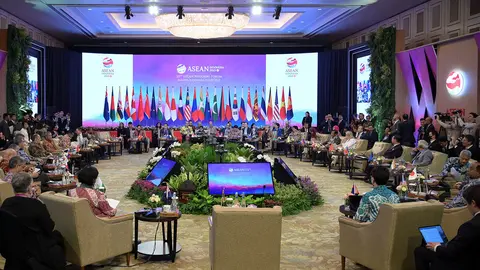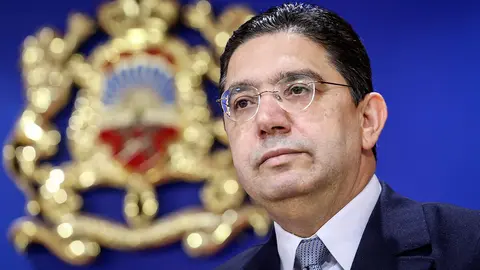Senior Chinese, Russian and US leaders at the ASEAN Summit
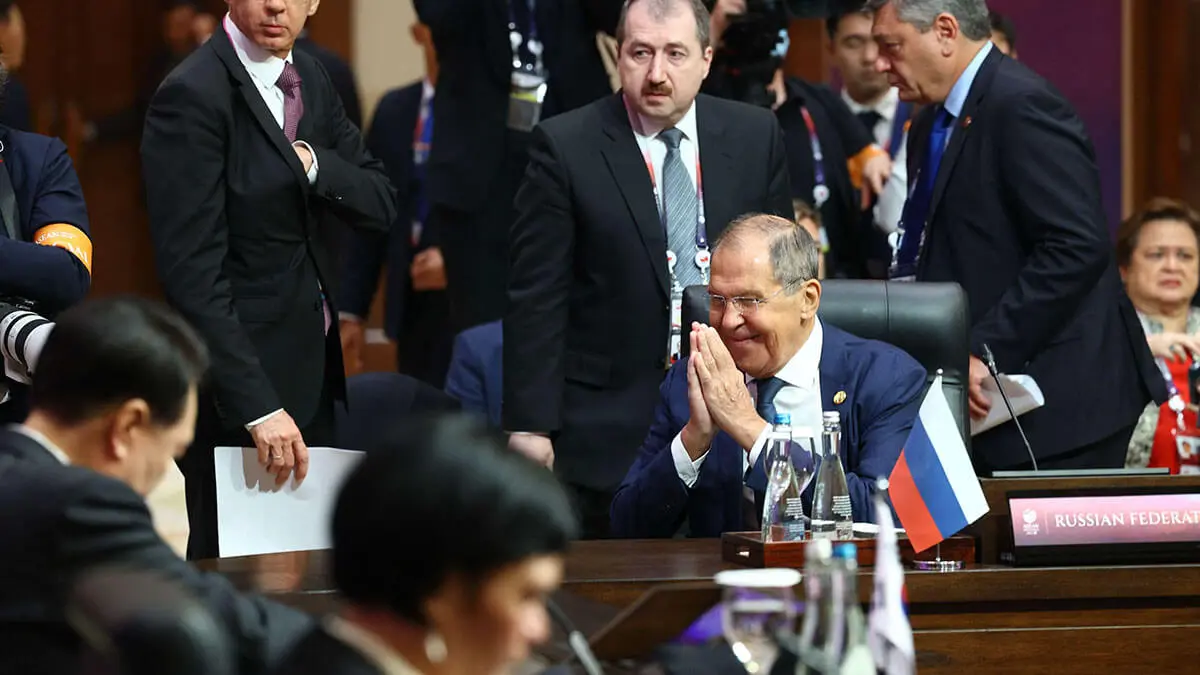
The East Asia summit in Indonesia presents a unique opportunity for high-level interaction between the world's three most powerful nations: China, the United States and Russia. Representing China is Prime Minister Li Qiang; representing the United States is Vice President Kamala Harris; and Foreign Minister Sergey Lavrov is representing Russia.
Formed in 1967 by the Philippines, Indonesia, Malaysia, Singapore and Thailand, ASEAN (Association of Southeast Asian Nations) was formed to foster regional cooperation in culture and the arts, social progress and economic development. There are currently 10 nations in the organisation: Burma, Brunei, Cambodia, Indonesia, Laos, Malaysia, the Philippines, Singapore, Thailand and Vietnam.
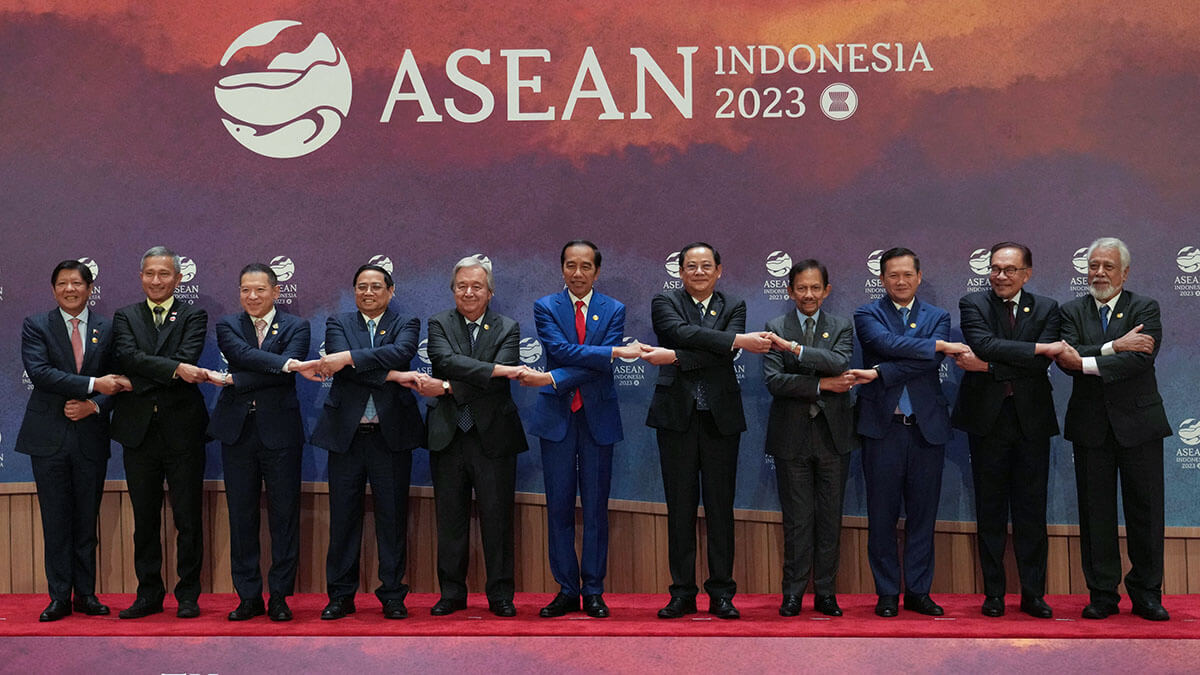
A day after Chinese Premier Li Qiang warned that the superpowers must manage their differences to avoid "a new Cold War", the meeting (involving 18 nations) has brought China and the United States into contact. Li said: "Disagreements and disputes may arise between countries due to misunderstandings, divergent interests or outside interference".
Given the potential for increased tensions over Taiwan, relations with Russia and competition for influence in the Pacific, interactions between the two blocs (China-Russia and the US) will be closely watched.
In his opening remarks, Indonesian President Joko Widodo urged leaders at the East Asia Summit to use the forum to foster cooperation rather than exacerbate tensions. ASEAN leaders on the sidelines of the summit met with Li Qiang and US Vice President Kamala Harris. The US diplomat emphasised "the importance of upholding international law in the South China Sea", which Beijing claims almost in its entirety and which Harris said is "causing major conflicts with other Southeast Asian nations".
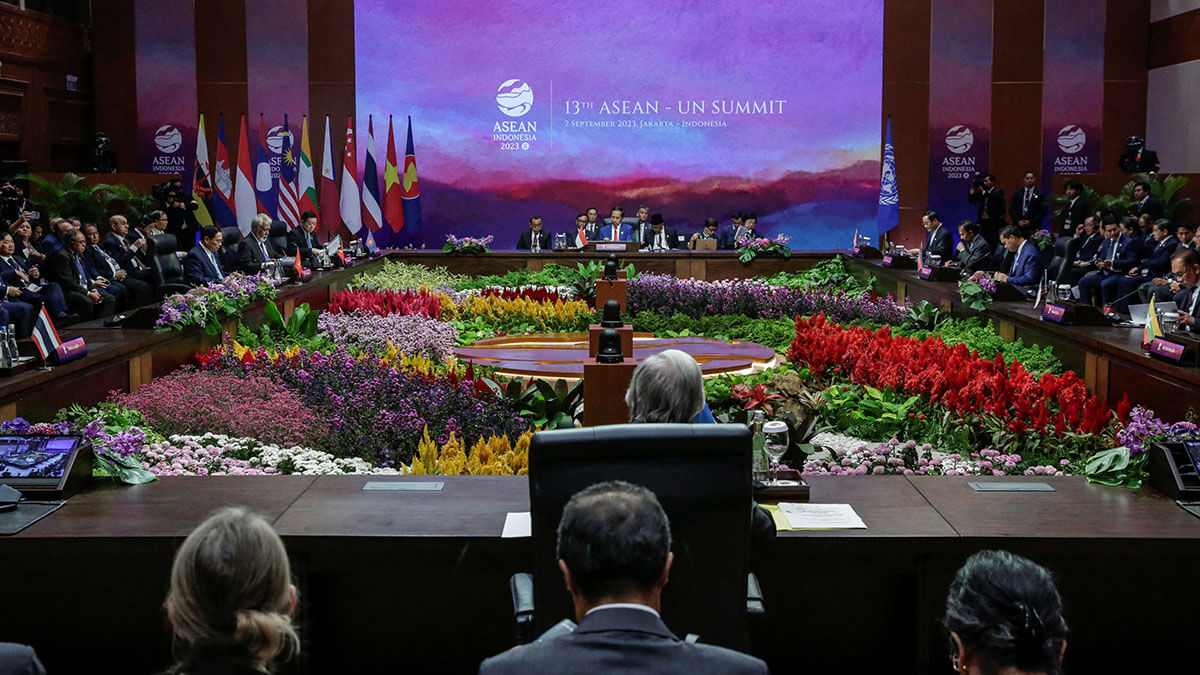
Harris announced the opening of the first US-ASEAN centre in Washington as evidence of the US's growing interest in the region. The US-Philippines partnership "underscored the role of the US-Philippines partnership in ensuring a free, open and prosperous Indo-Pacific," according to a statement from her office. The vice president also reaffirmed the US commitment to the unwavering partnership with the Philippines.
After a July meeting in which Moscow's top diplomat, Sergei Lavrov, drew criticism from his Western counterparts, the summit marks the first time since then that US and Russian leaders have sat at the same table. Officials from the ASEAN nations, plus Canada, Australia, India, Japan and South Korea were also summoned to the meeting.
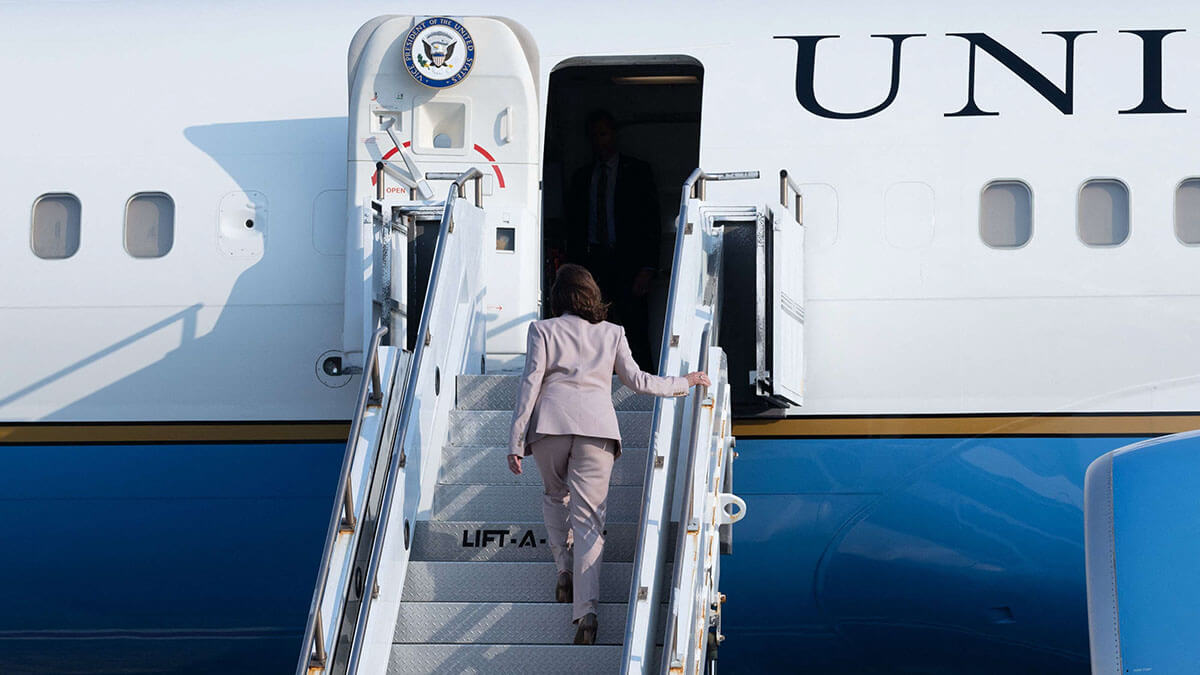
Creating post-COVID rules based on the global order and working together to ensure "a free and open Indo-Pacific" are two things Indian Prime Minister Narendra Modi, host of this weekend's G20 summit, has called for. South Korean President Yoon Suk Yeol, meanwhile, warned ASEAN leaders not to cooperate with North Korea, which the United States says is in talks to sell arms to Russia.
Americas Coordinator: José Antonio Sierra.

